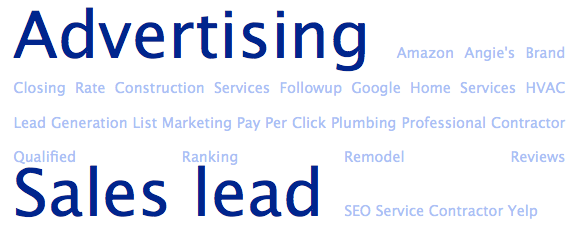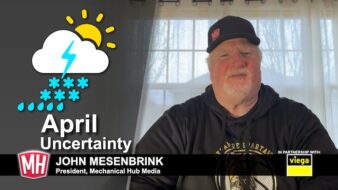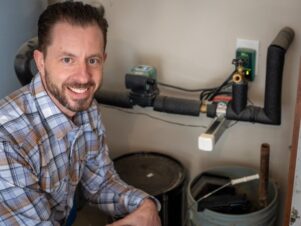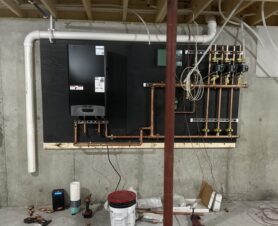By Josh Koplin
The Anticipation Advantage
We’re talking about neuroscience—yes, neuroscience.
What do the inner workings of the human brain have to do with getting a great deal, whether that means getting the perfect Black Friday TV or, believe it or not, an HVAC system? Plenty, as it turns out.
Picture the scene: You’re hovering over the “add to cart” button, waiting for that sale price to drop. Your heart isn’t racing once you’ve already snagged the big screen—it’s pounding right before, in that sweet spot of maybe. Anticipation, not fulfillment, is where the brain’s real fireworks happen.
Humans aren’t just driven by rewards; we’re propelled by their promise. It’s the inkling that we might get a killer price, might outsmart the market, might score something special that sends dopamine shooting through our neural pathways.
Consider a gambler at a craps table—dopamine doesn’t spike when they win, it elevates when the dice are suspended midair when that big win is possible. Dopamine, often described as the “pleasure” chemical, is more like the chemical of “maybe:” the neurochemical of anticipation that something great could be right around the corner.

The Neuroscience of HVAC: Turning Necessity Into Opportunity
Now, let’s apply this to a less thrilling scenario for most consumers: buying an HVAC system.
For most homeowners, replacing a furnace or adding central air is about as glamorous as scheduling a dentist appointment. But even a mundane necessity sparks more interest if it feels like a deal. Consider a high-efficiency heat pump listed at $20,000. At face value, that might send the would-be buyer running. Toss in a $2,000 tax credit, a $1,500 local utility rebate, and a $1,000 seasonal manufacturer promotion, and suddenly that total drops by $4,500.
With each discount line item, the buyer’s brain perks up, anticipating that sweet sense of winning the pricing game.
Neuroscientists have shown that bigger potential rewards translate into stronger activation in the brain’s reward pathways. A modest discount is nice, but shaving thousands off the bill? That’s the kind of number that lights up the mental scoreboard. On the flip side, if someone encounters a price they deem “unfair,” the insula region of their brain—a center associated with pain and disgust—flares into action, pushing them away from the purchase.
This is where strategy comes in: By pairing substantial incentives with financing options that display monthly costs, you can dampen that insula response. Instead of seeing one large upfront sum, the homeowner sees a more approachable monthly figure, say $140 per month. This shift reframes the deal as manageable and less painful, keeping dopamine flowing rather than triggering the insula’s alarm bells.
Make Savings Obvious and Immediate
So how do you put all this brain science into play? Start at your homepage. Forget paragraphs of backstory—your visitor wants an instant reason to hang around. Parade those incentives right out front:
- Federal tax credit: up to $2,000
- Local utility rebate: up to $1,500
- Seasonal promotion: $1,000 off
These aren’t just figures; they’re brain candy. Even if the homeowner isn’t ready to buy on the spot, their brain is already logging these potential savings. They’re thinking, “Hey, I might get a really good deal here,” and that anticipation breeds motivation.
Speed Is Key: The Power of Online Quotes
Once you’ve laid out the incentives, don’t let the momentum slip away.
As consumers, we’re overwhelmed by stimuli vying for our attention and more easily distracted than ever. The longer it takes to get a clear price, the more likely it is that the customer will lose interest and the initial dopamine surge will drain. Online quoting tools are a powerful solution: A homeowner punches in a few details—location, home size, desired system—and gets an estimate in seconds.
Show the final figure and the incentives, then break it down into a monthly payment. What’s more, online transparency cultivates trust and makes customers more likely to reach out. Watch their interest climb.

From Online Curiosity to Kitchen Table Commitment
Now, all of this might seem like just putting science to what good salespeople and marketers already know. And that’s exactly the point. The difference now is the battlefield.
Homeowners increasingly start their search online, poking around in off-hours, maybe with the TV on mute and a phone in hand. Before they ever sit down at the kitchen table to hear your pitch, they’re testing the waters online. In a competitive market humming with options, it’s more important than ever to hit those reward circuits when consumers browse, in order to make sure that you earn a seat at the kitchen table.
So yes, HVAC sales and neuroscience make an odd couple at first glance. But a bit of neuroscientific insight and online strategy just might just be the difference between a lead bouncing away versus and getting to that kitchen table with a “yes, let’s do this.”
 Josh Koplin is a co-founder of EDEN, a Seattle-based startup with a mission to empower contractors with innovative technology, helping them to grow their businesses and provide exceptional customer experiences. Founded in 2021, EDEN provides a digital sales enablement tool to help HVAC contractors provide quick and accurate instant quotes for HVAC systems. By leveraging technology to provide prices and detailed breakdowns of eligible incentives and expected utility savings online, EDEN helps promote high-efficiency systems that contribute to sustainability and benefits both homeowners and contractors. For more information, visit https://www.e-denhomes.com/.
Josh Koplin is a co-founder of EDEN, a Seattle-based startup with a mission to empower contractors with innovative technology, helping them to grow their businesses and provide exceptional customer experiences. Founded in 2021, EDEN provides a digital sales enablement tool to help HVAC contractors provide quick and accurate instant quotes for HVAC systems. By leveraging technology to provide prices and detailed breakdowns of eligible incentives and expected utility savings online, EDEN helps promote high-efficiency systems that contribute to sustainability and benefits both homeowners and contractors. For more information, visit https://www.e-denhomes.com/.




Join the conversation: